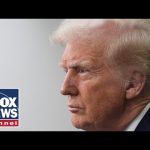In a whirlwind of policy reversals and bold initiatives, President Donald Trump has wasted no time in reshaping the political and cultural landscape just weeks into his second term. From rolling back environmental regulations to restoring military traditions, Trump’s actions reflect a return to the unapologetic, America-first agenda that defined his first presidency. While critics decry these moves as regressive, supporters argue they mark a decisive shift toward practicality, tradition, and national sovereignty.
One of Trump’s most talked-about decisions has been his executive order reinstating plastic straws in federal agencies. The move reverses a Biden-era policy aimed at phasing out single-use plastics in favor of paper alternatives. Trump dismissed the environmental concerns surrounding plastic waste, deriding paper straws as ineffective and impractical. His decision has sparked a broader debate about the balance between environmentalism and consumer convenience, with conservatives applauding the return to common sense over what they see as performative policies pushed by progressive activists.
Trump’s domestic focus extends beyond straws to household appliances and energy standards. He has directed federal agencies to roll back stringent efficiency regulations on dishwashers, washing machines, showerheads, and lightbulbs—rules implemented under the Biden administration that many consumers found burdensome. By prioritizing consumer choice over regulatory mandates, Trump aims to restore what he calls “common sense standards” while addressing frustrations over high costs and reduced functionality. This rollback reflects a broader conservative critique of government overreach into everyday life.
On the cultural front, Trump has also made waves by restoring the name Fort Bragg to one of the Army’s largest bases in North Carolina. Previously renamed Fort Liberty under a congressional mandate to remove Confederate associations from military installations, the base will now honor World War II hero Private Roland Bragg instead of Confederate General Braxton Bragg. The move underscores Trump’s commitment to preserving military traditions while re-contextualizing them in a way that sidesteps divisive historical debates. Supporters see this as a win for honoring service and sacrifice without erasing history.
Meanwhile, Vice President JD Vance has taken Trump’s assertive leadership style abroad, delivering a fiery address at an AI summit in Paris. Vance warned against Europe’s “excessive regulation” of artificial intelligence, positioning the U.S. as a global leader in innovation with a hands-off approach. His speech reinforced the administration’s America-first philosophy while drawing sharp contrasts with both European and Chinese policies on technology governance.
Together, these actions signal a dramatic departure from the policies of the Biden administration and a return to Trump’s hallmark blend of populism and nationalism. By focusing on practical reforms at home and projecting strength abroad, Trump is doubling down on his promise to restore American greatness. Whether these moves will yield long-term benefits or provoke further division remains to be seen, but one thing is clear: Trump is governing with the same boldness that has always defined his political career.




